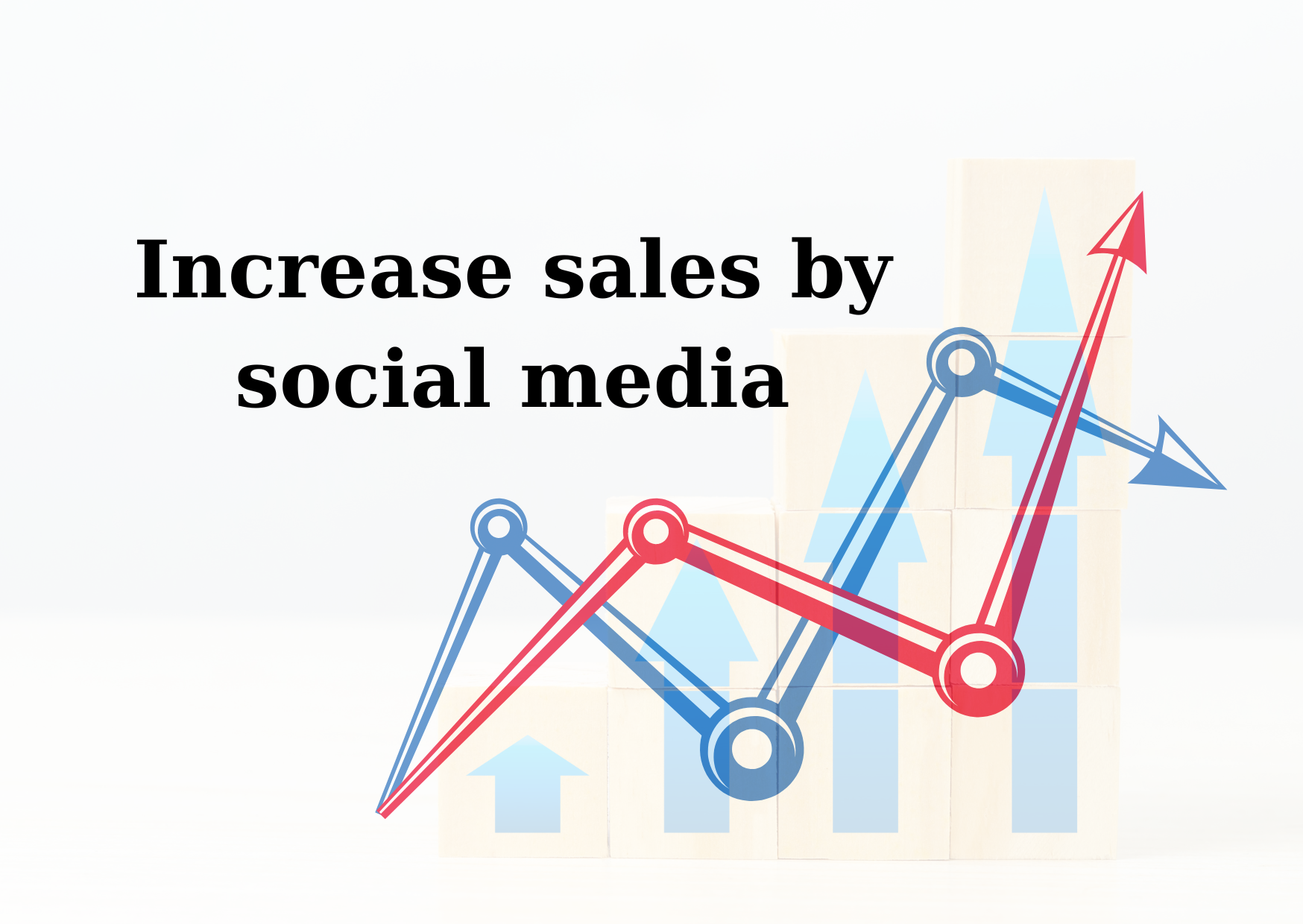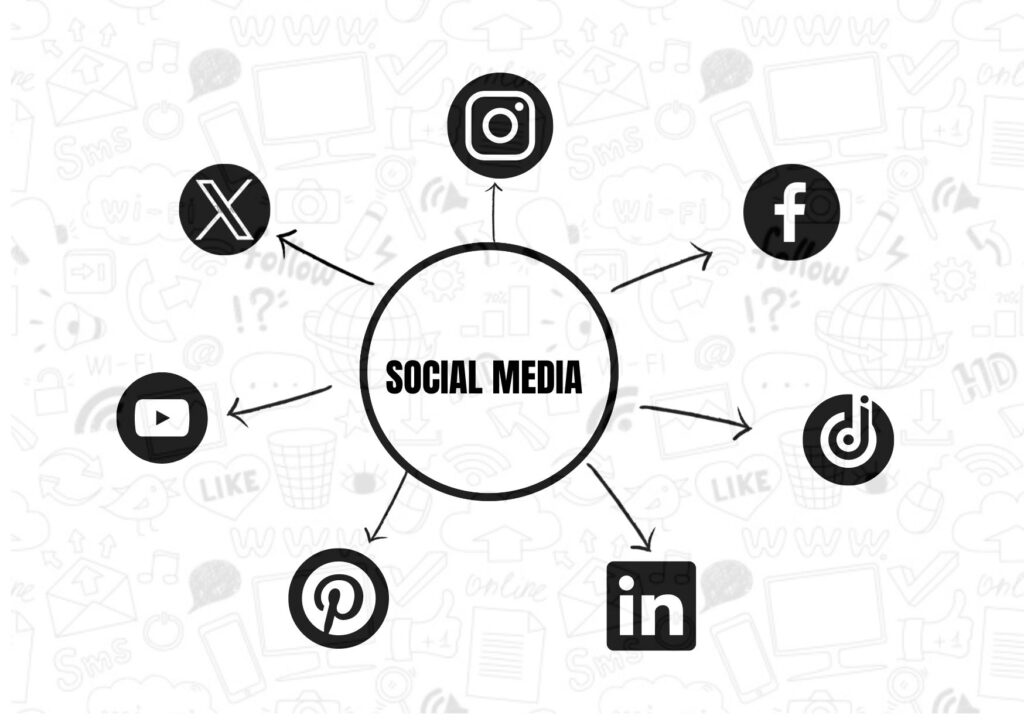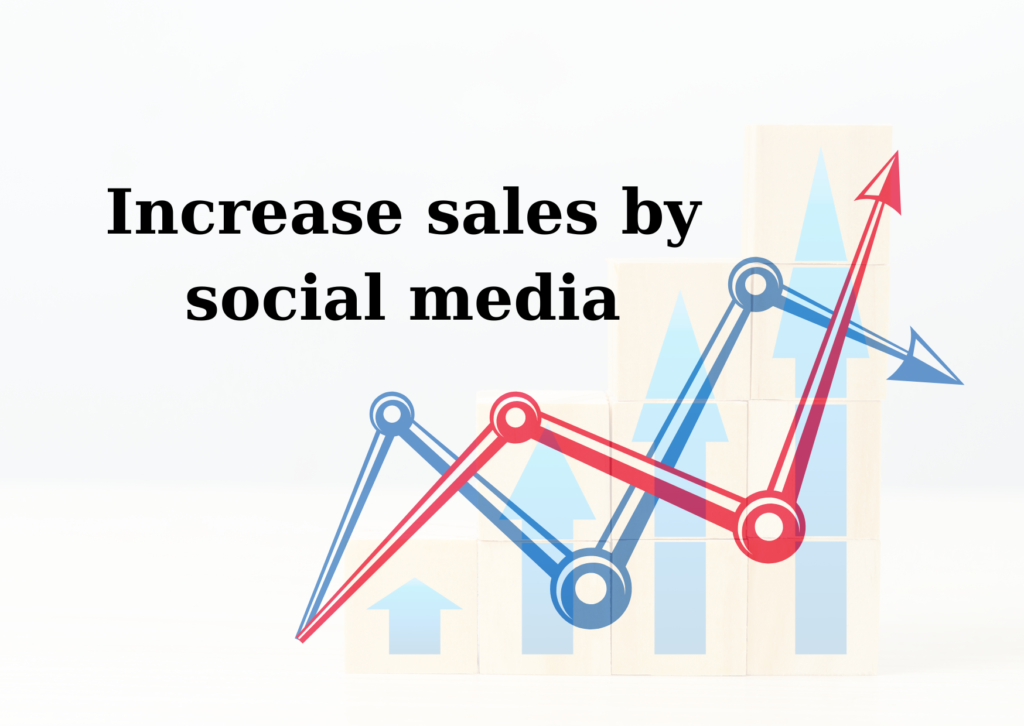
Introduction:
In the digital world, social media has emerged as a pivotal tool for many businesses to expand their reach, engage with audiences, and enhance brand visibility. Social media marketing, abbreviated as SMM, revolves around leveraging various platforms to promote products/services, increase sales, and foster brand recognition.
What is Social Media Marketing?
Social media marketing encapsulates the use of social media platforms to connect with your audience, build your brand, increase sales, and drive website traffic. It involves crafting engaging content, increasing website traffic, interacting with users, and analyzing results to optimize strategies and it is cost effective.
Benefits of Social Media Marketing.
Building Brand Awareness
Establishing a strong brand presence on social media platforms helps in fostering recognition among potential customers. Consistent posting, engaging content, and active community participation contribute to increased brand visibility.
Increasing Website Traffic
Effective social media strategies lead to a surge in website traffic. By sharing valuable content and engaging with the audience, businesses can redirect users to their websites, thereby increasing potential leads.
Cost-Effectiveness
Compared to traditional advertising, social media marketing is a cost-effective method for businesses to promote their products or services. Organic reach and targeted advertising options on platforms like Facebook, Instagram, Twitter, etc., allow for budget-friendly yet impactful campaigns.
Enhancing Sales
Strategic use of social media platforms facilitates direct interaction with customers, enabling businesses to showcase products, offer promotions, and generate sales leads.
Social media Hashtag Analytics
The utilization of hashtags on various platforms aids in content categorization and discoverability. Hashtag analytics tools assist in analyzing the performance of hashtags used in campaigns.
Top social media platforms

1. Facebook
Features: Offers various content formats like text, images, videos, live streaming, and stories. Provides targeted advertising tools and analytics through Facebook Ads Manager.
Demographics: Broad user base across different age groups, with a significant presence of adults.
Advantages: Effective for brand awareness, customer engagement, community building through groups, customer support, and precise audience targeting for ads.
2. Instagram
Features: Primarily visual platform for photo and video sharing, Stories, Reels, and shopping features like shoppable posts.
Demographics: Popular among younger demographics, particularly millennials and Gen Z.
Advantages: Ideal for showcasing visually appealing products, influencer collaborations, brand storytelling, and e-commerce through shopping features.
3. LinkedIn
Features: Professional networking platform for B2B connections, company pages, groups, and content sharing.
Demographics: Mainly used by professionals, businesses, job seekers, and recruiters.
Advantages:Valuable for B2B marketing, networking, thought leadership, industry insights sharing, recruitment, and establishing authority.
4. YouTube
Features: Largest video-sharing platform with diverse content genres, tutorials, vlogs, live streaming, and advertising options.
Demographics: Attracts various age groups, especially those seeking video content.
Advantages: Effective for video content marketing, tutorials, product demonstrations, brand storytelling, engaging with subscribers through live streams, and running video ads.
5. TikTok
Features: Short-form video platform allowing creative and entertaining content creation.
Demographics: Predominantly used by younger demographics, particularly Gen Z.
Advantages: Ideal for viral content creation, brand promotion through challenges, influencer marketing, and reaching a younger audience with engaging content.
6. Twitter
Features: Microblogging platform for short updates, threads, hashtags, and direct engagement.
Demographics: Attracts users interested in real-time updates, news, and discussions.
Advantages: Effective for real-time engagement, customer service, sharing news, participating in discussions, and driving website traffic through valuable content.
7. Pinterest
Features: Visual discovery and bookmarking platform for images and videos (Pins) organized into boards.
Demographics: Predominantly used by women for discovering and planning ideas related to lifestyle, fashion, food, and DIY.
Advantages: Suitable for businesses in visual-centric industries, driving website traffic through Pins, showcasing products, and inspiring users with creative content. Each platform has its unique strengths, catering to specific audiences and content types. Businesses can leverage these platforms based on their target audience demographics, content strategies, and marketing objectives to maximize their online presence and achieve desired goals.
Best Social Media Scheduling Apps
Hootsuite:
Buffer:
Later:
Sprout Social:
Co Schedule:
Strategies to Promote Business on Social Media:
Engaging Content Creation:
Consistent Branding:
Paid Advertising:
Increasing Sales using Social Media

Strategically leveraging social media can significantly impact sales growth By:
Implementing E-commerce Features:
Using Shoppable Posts:
Offering Exclusive Deals:
Best Way for Promoting Business on Social Media platforms:
Build Brand Awareness on Social Media
Consistent Interaction:
Influencer Collaborations:
User-Generated Content:
Conclusion:
Blog by :Hemanth

Introduction:
In the digital world, social media has emerged as a pivotal tool for many businesses to expand their reach, engage with audiences, and enhance brand visibility. Social media marketing, abbreviated as SMM, revolves around leveraging various platforms to promote products/services, increase sales, and foster brand recognition.
What is Social Media Marketing?
Social media marketing encapsulates the use of social media platforms to connect with your audience, build your brand, increase sales, and drive website traffic. It involves crafting engaging content, increasing website traffic, interacting with users, and analyzing results to optimize strategies and it is cost effective.
Benefits of Social Media Marketing.
Building Brand Awareness
Establishing a strong brand presence on social media platforms helps in fostering recognition among potential customers. Consistent posting, engaging content, and active community participation contribute to increased brand visibility.
Increasing Website Traffic
Effective social media strategies lead to a surge in website traffic. By sharing valuable content and engaging with the audience, businesses can redirect users to their websites, thereby increasing potential leads.
Cost-Effectiveness
Compared to traditional advertising, social media marketing is a cost-effective method for businesses to promote their products or services. Organic reach and targeted advertising options on platforms like Facebook, Instagram, Twitter, etc., allow for budget-friendly yet impactful campaigns.
Enhancing Sales
Strategic use of social media platforms facilitates direct interaction with customers, enabling businesses to showcase products, offer promotions, and generate sales leads.
Social media Hashtag Analytics
The utilization of hashtags on various platforms aids in content categorization and discoverability. Hashtag analytics tools assist in analyzing the performance of hashtags used in campaigns.
Top social media platforms

1. Facebook
Features: Offers various content formats like text, images, videos, live streaming, and stories. Provides targeted advertising tools and analytics through Facebook Ads Manager.
Demographics: Broad user base across different age groups, with a significant presence of adults.
Advantages: Effective for brand awareness, customer engagement, community building through groups, customer support, and precise audience targeting for ads.
2. Instagram
Features:
Primarily visual platform for photo and video sharing, Stories, Reels, and shopping features like shoppable posts.
Demographics:
Popular among younger demographics, particularly millennials and Gen Z.
Advantages:
Ideal for showcasing visually appealing products, influencer collaborations, brand storytelling, and e-commerce through shopping features.
3. LinkedIn
Features:
Professional networking platform for B2B connections, company pages, groups, and content sharing.
Demographics:
Mainly used by professionals, businesses, job seekers, and recruiters.
Advantages:
Valuable for B2B marketing, networking, thought leadership, industry insights sharing, recruitment, and establishing authority.
4. YouTube
Features:
Largest video-sharing platform with diverse content genres, tutorials, vlogs, live streaming, and advertising options.
Demographics:
Attracts various age groups, especially those seeking video content.
Advantages:
Effective for video content marketing, tutorials, product demonstrations, brand storytelling, engaging with subscribers through live streams, and running video ads.
5. TikTok
Features:
Short-form video platform allowing creative and entertaining content creation.
Demographics:
Predominantly used by younger demographics, particularly Gen Z.
Advantages:
Ideal for viral content creation, brand promotion through challenges, influencer marketing, and reaching a younger audience with engaging content.
6. Twitter
Features:
Microblogging platform for short updates, threads, hashtags, and direct engagement.
Demographics:
Attracts users interested in real-time updates, news, and discussions.
Advantages:
Effective for real-time engagement, customer service, sharing news, participating in discussions, and driving website traffic through valuable content.
7. Pinterest
Features:
Visual discovery and bookmarking platform for images and videos (Pins) organized into boards.
Demographics:
Predominantly used by women for discovering and planning ideas related to lifestyle, fashion, food, and DIY.
Advantages:
Suitable for businesses in visual-centric industries, driving website traffic through Pins, showcasing products, and inspiring users with creative content.
Each platform has its unique strengths, catering to specific audiences and content types. Businesses can leverage these platforms based on their target audience demographics, content strategies, and marketing objectives to maximize their online presence and achieve desired goals.
Best Social Media Scheduling Apps
Here are some top scheduling apps that streamline social media management:
Hootsuite:
Known for its user-friendly interface, Hootsuite allows scheduling across multiple platforms, monitoring brand mentions, and analyzing social media performance.
Buffer:
Buffer simplifies content scheduling and offers detailed analytics. Its intuitive platform allows for easy content curation and scheduling.
Later:
Particularly beneficial for Instagram scheduling, Later enables users to visually plan and schedule posts, stories, and IGTV videos.
Sprout Social:
With a focus on in-depth analytics and social listening, Sprout Social assists in creating, scheduling, and analyzing content across various platforms.
Co Schedule:
It’s an all-in-one marketing calendar that allows teams to schedule social media, blog posts, and other marketing content in one place.
Strategies to Promote Business on Social Media:
Engaging Content Creation:
Crafting compelling content is crucial. It should resonate with the target audience, evoke emotions, and encourage interaction.
Consistent Branding:
Maintaining a cohesive brand image across platforms ensures recognition and trust among the audience.
Paid Advertising:
Utilizing targeted ads on social media platforms enables precise audience segmentation and higher conversion rates.
Increasing Sales using Social Media

Strategically leveraging social media can significantly impact sales growth By:
Implementing E-commerce Features:
Platforms like Facebook and Instagram offer e-commerce features, enabling direct purchasing from posts, thereby reducing the purchase journey for customers.
Using Shoppable Posts:
Integrating product tags in posts on platforms like Instagram allows users to purchase products directly from the platform.
Offering Exclusive Deals:
Providing special discounts or offers exclusively for social media followers encourages purchases and fosters customer loyalty.
Best Way for Promoting Business on Social Media platforms:
To promote a business effectively on social media, a multifaceted approach is necessary. This includes understanding the target audience, creating compelling content, maintaining consistency, engaging with the audience, and utilizing analytics tools to measure performance.
Build Brand Awareness on Social Media
Consistent Interaction:
Engaging with the audience through comments, direct messages, and interactive content helps in building a loyal community.
Influencer Collaborations:
Partnering with influencers relevant to the brand helps in reaching a wider audience and building credibility.
User-Generated Content:
Encouraging users to create content related to the brand fosters a sense of community and authenticates the brand image.
Conclusion:
In conclusion, social media marketing serves as a potent tool for businesses aiming to expand their reach, drive sales, and build a reputable brand image. By harnessing the power of various social media platforms, utilizing scheduling apps effectively, and implementing strategic marketing tactics, companies can effectively grow their online presence and achieve their business objectives. If you want to learn more about social media marketing take the course.
Blog by :Hemanth
